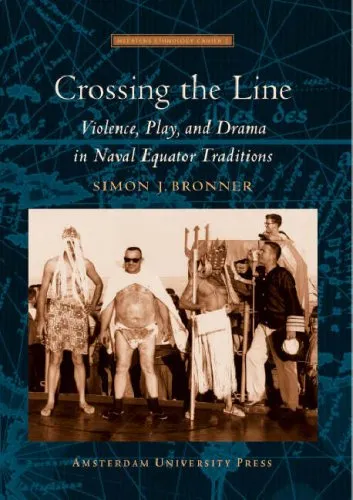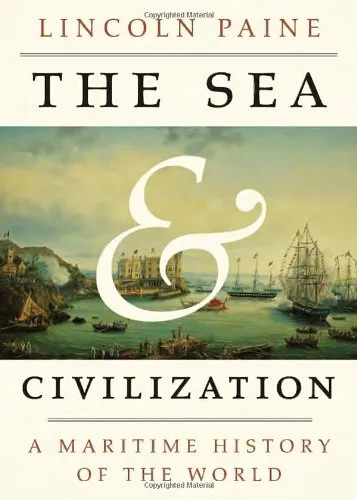Crossing the Line: Violence, Play, and Drama in Naval Equator Traditions
5.0
Reviews from our users

You Can Ask your questions from this book's AI after Login
Each download or ask from book AI costs 2 points. To earn more free points, please visit the Points Guide Page and complete some valuable actions.Related Refrences:
Persian Summary
Introduction to "Crossing the Line: Violence, Play, and Drama in Naval Equator Traditions"
Welcome to a deep dive into the traditions, cultural implications, and historical context of a maritime ritual that dates back centuries. "Crossing the Line: Violence, Play, and Drama in Naval Equator Traditions" sheds light on the unique customs sailors experience when traversing the Equator, exploring the blend of initiatory rites, play, and dramatic performances within naval culture.
Detailed Summary of the Book
The book embarks on an exploratory journey into the ceremonies that occur on naval vessels as they cross the Equator. Known as the "Line-Crossing Ceremony," this tradition involves elaborate rituals that mix elements of pageantry, corporal punishment, and theatrical expression. These rites often serve as an initiation for sailors who have never crossed the Equator, heralding them into the ranks of "Shellbacks," or seasoned sailors.
The narrative traverses through various international practices, illustrating how different navies have adapted this tradition to incorporate local and cultural nuances. It delves into the dichotomy between the ceremonial violence that can occur and the community-building aspect that these rituals often aim to foster. The book provides historical footage and documents to enrich the reader's understanding of how these practices evolved over time and why they remain significant in modern navies.
Key Takeaways
- The tradition of "Crossing the Line" serves both as a rite of passage and a theatrical performance, blending elements of humor, fear, and camaraderie.
- The ceremonies can vary dramatically between different cultural contexts but share universal themes of transformation and boundary crossing.
- The rituals often mirror societal structures and values, offering insight into hierarchical dynamics and the subtle interplay of power and tradition.
- By examining these customs, the book confronts the fine line between playful hazing and unacceptable violence, prompting discourse on broader themes of initiation and inclusion.
Famous Quotes from the Book
"The sea has long been a stage, and the crossing of its invisible lines forms the script of a drama where every sailor plays his part."
"In the rituals of crossing, one can glimpse the outlines of maritime history, the shadow of past voyages echoing in the ceremonial rites of the present."
Why This Book Matters
"Crossing the Line" is more than just a historical account—it serves as a critical exploration of human behavior and social constructs. By examining these unique naval traditions, the book provides a lens through which we can understand the complexities of maritime life and the lasting impact of tradition in shaping identity and community in isolated environments like ships at sea.
The work resonates in today's conversations about tradition versus modern values, the role of ritual in professional settings, and the sometimes blurred lines between expected norms and harmful practices. It invites readers to not only witness these traditions but also question and reflect on their significance, making it an essential read for historians, sociologists, and anyone interested in the interplay between culture and tradition.
Free Direct Download
You Can Download this book after Login
Accessing books through legal platforms and public libraries not only supports the rights of authors and publishers but also contributes to the sustainability of reading culture. Before downloading, please take a moment to consider these options.
Find this book on other platforms:
WorldCat helps you find books in libraries worldwide.
See ratings, reviews, and discussions on Goodreads.
Find and buy rare or used books on AbeBooks.
1381
بازدید5.0
امتیاز50
نظر98%
رضایتReviews:
5.0
Based on 0 users review
"کیفیت چاپ عالی بود، خیلی راضیام"





